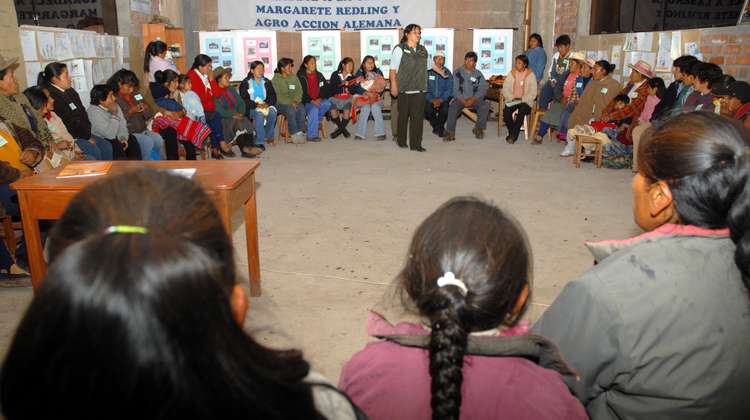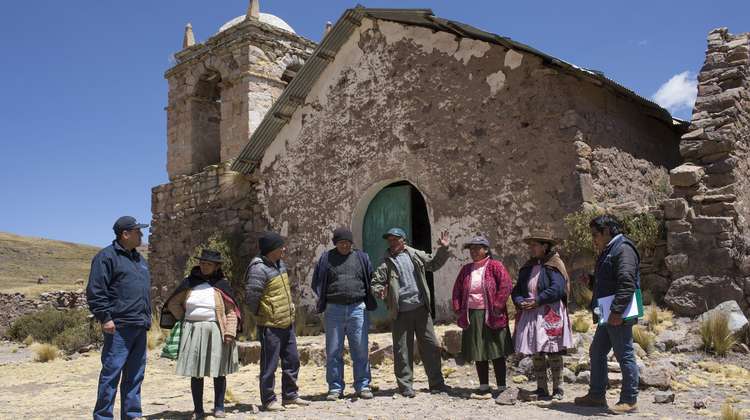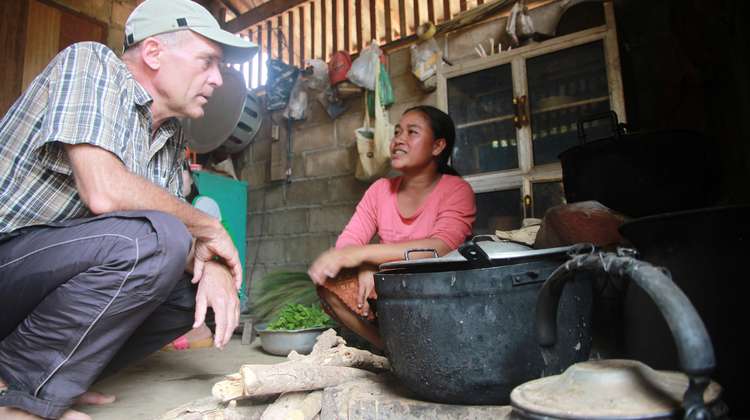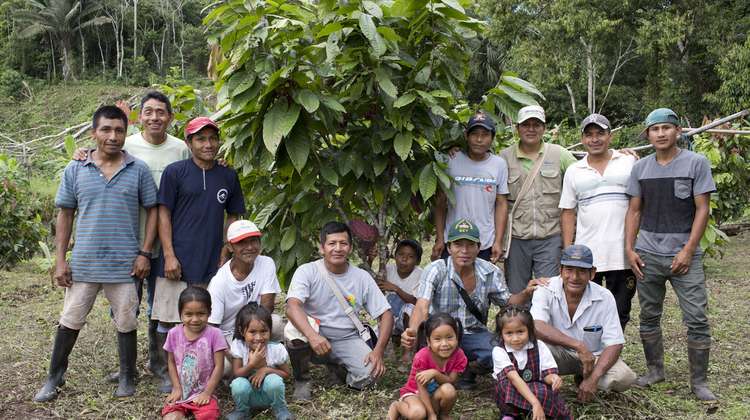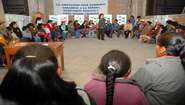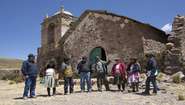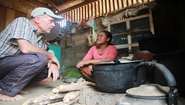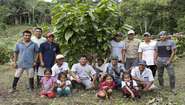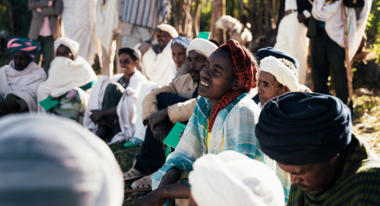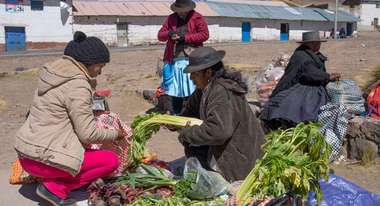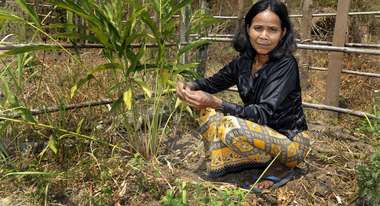Strong Networks with Partners on Equal Terms
A world without hunger needs an active civil society
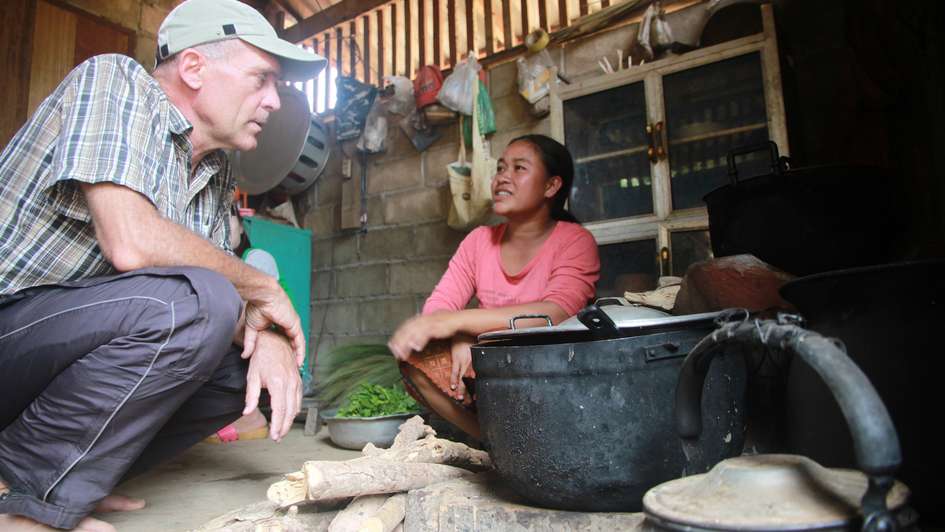
The world is changing – and with it the demands on development cooperation. Some countries have generated an economic upswing, but the gap between rich and poor continues to widen. Smallholders in remote regions in particular do not benefit from any gains. On the contrary: Economics and politics frequently restrict their rights. A crucial step toward Zero Hunger by 2030 is the development of an active civil society. The Welthungerhilfe (WHH) Advocacy Strategy gives a voice to marginalised people to actively demand their human right to food.
From aid recipients to mature citizens
In India during the 2016 drought, WHH and its partners mobilised a broad alliance that pushed the state to act. Thousands of smallholders took part in large demonstrations in Delhi. Now, the government is promoting traditional water systems in the drought-affected villages. People are proud of their success.
New focus for WHH
In Peru and other transformation countries, WHH is supporting the development of civil society actors. Smallholders and alpaca breeders are joining forces in groups, associations, and other types of organizations. Through training sessions, advice and networking they become confident citizens who know their rights and demand them from the state.
In Ethiopia, partner organizations are taking over responsibility for WHH's ‘classic’ technical projects. Experts from the country office continue to advise them at an organizational level. The Civil Society Academy (CSA) has been established in Cambodia and other countries. Since 2014 it has been promoting civil society organizations by providing training in abilities and competencies to empower people and fight against hunger, land grabbing, and inequality. Management personnel are trained, networks organized, and conferences and a platform for knowledge management are developed. The CSA started operating independently from WHH in March 2023.
Partnership cooperation and systematic promotion of civil society means:
- Country-specific analysis for opportunities and risks of civil society engagement
- Cooperation with key civil society partners for inclusive and fair development
- Capacity development of partner organzations
- Empowerment of grassroots groups and other civil society actors
- Advice, training, and education of management personnel
- Organizational development
- Local, national, regional, and international networking
- Regular monitoring
- Systematic feedback mechanisms
- Financial and material support
- Transparency and accountability
- Mutual learning
The human rights-based Advocacy Strategy of WHH sets standards for development cooperation work. It takes the Agenda 2030 at its word, to leave nobody behind. But only a strong civil society can create social justice and with it a world without hunger.




